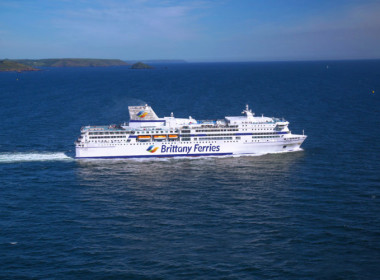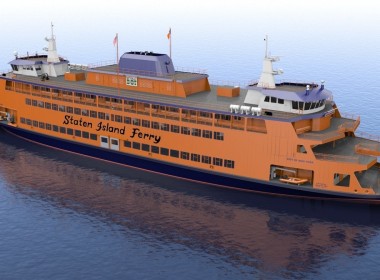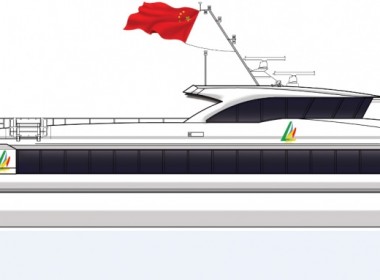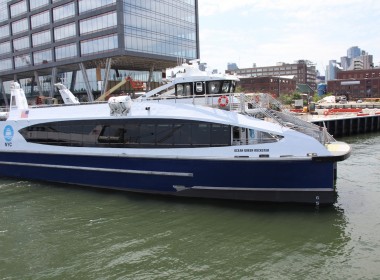FEATURE | The resilience of ferries in the time of pandemic
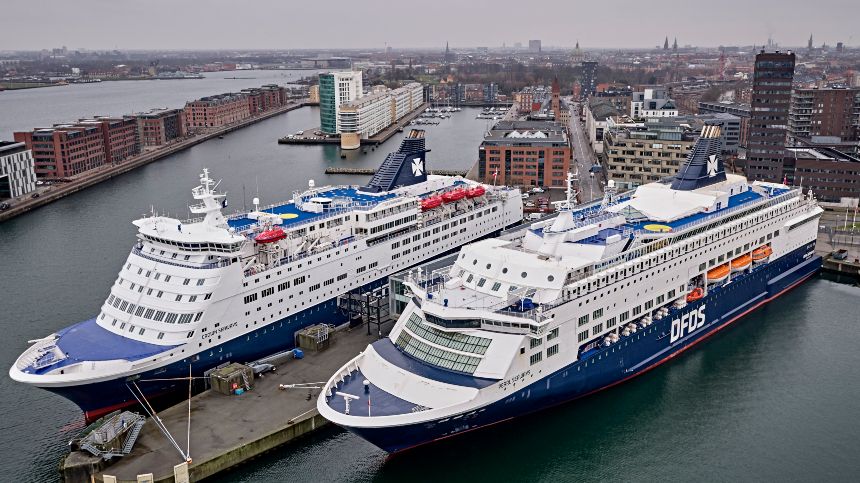
As we head into the fall session in the northern half of the world and reflect on a summer that has been anything but normal, it still is extremely difficult – if not impossible – to foresee the future relative to the economic impact of Covid-19 and the overall transportation industry. One thing is certain though; as predicted, ferries have proven to be the safest and most popular travel mode during the pandemic.
Unfortunately, this is likely small consolation for our sector, which is still experiencing drops in traffic of somewhere between 30 to 50 per cent – with our busiest three months of the year now behind us – and a mountain of fixed costs to manage over the quieter fall/winter period.
To that end, in this month’s report I would like to tell you about a global ferry market impact study we are undertaking in an effort to get more assistance from various regulators and governments, and also about changes to the regulatory section of our website that will provide a quick reference to the key files we are actively engaged in.
Also, as part of our ongoing series of interviews with global ferry industry leaders, I’m pleased to present two more Zoom interviews with Torben Carlsen, CEO of DFDS, and Tim Mooney, President and Owner of Fire Island Ferries.
Interferry initiates global ferry market impact study
Following guidance from the Board, as set out in the most recent strategic plan, staff has begun the process of undertaking market research to define the size and impact of the global ferry operator market.
Earlier this summer, the Board participated in a scoping exercise to identify key deliverables for the research. Using outcomes from that exercise, we developed a request for proposals and sent it to five internationally recognised consulting groups.
Specifically, the objectives are:
- To collect a database of all operators in the global market that includes a variety of company characteristics.
- To determine the direct and indirect economic impact of the industry by geographic region through the development of multipliers.
- Comparatively analyse the economic impact of the ferry industry relative to other related industries (examples: airline, cruise ship).
- Measure the impact of Covid-19 travel restrictions on ferry dependent communities.
Proposals are due to be received by September 18. Staff will review and provide a recommendation for selection of the consultant team to the Board at its October 27 meeting. Research will be conducted during the period November 2020 through June 2021, with a final report due no later than the end of August 2021. This is all subject to the responses we receive from the consulting companies falling within our financial parameters.
During the research process, Interferry members may be called on to provide input. I want to assure you that the detailed information collected during this research project will be kept confidential and used strictly for assisting Interferry in its regulatory efforts to define the size and impact of the global ferry market. The consultants will produce an aggregated report, but in no way will characteristics of individual operators be apparent.
We would appreciate your cooperation in helping us collect this data, which ultimately will be used to enhance our lobbying efforts and influence with regulators and governments around the world.
Enhancements to the regulatory section of Interferry’s website
In an effort to make it easier to get a quick snapshot of the key regulatory issues we are working on via Johan Roos’ office, we have created a “Key Regulatory Issues” submenu tab in the Regulatory Affairs section of our website. By clicking on issues like Ro-Pax Fire Safety, Greenhouse Gases, HSC Code and EGCS you will be able to get a background summary of each issue, its current status and the next steps that we will be undertaking.
Here’s a link to the Regulatory section for your review. As always, your feedback is appreciated as we strive to make these updates as useful as possible.
CEO Zoom Interviews: Torben Carlsen of DFDS, Denmark and Tim Mooney of Fire Island Ferries, New York, USA
As I mentioned at the outset, this month I had the opportunity to interview Torben Carlsen, CEO of DFDS in Copenhagen, Denmark and Tim Mooney, President and owner operator of Fire Island Ferries in New York, USA.
DFDS has an intricate system of ferry operations throughout Europe. Torben Carlsen assumed the role of CEO about a year ago but has been with the company for almost a decade. He remarked that the change into the role of CEO has been more difficult than he anticipated, and I’m certain that Covid-19 didn’t make it any easier.
“You feel a different pressure as CEO,” he offered. “It’s easier to give advice and let someone else decide, but that role now falls to me. I was also in need of a new CFO and while we waited for that, I had a broader range of responsibilities.”
Like everyone in the ferry industry, Covid-19 was a shock for DFDS, with greater impact than anyone first thought. Torben talks about the opportunity that has come out of Covid-19 and how he introduced regular video logs as a way to communicate with employees, especially given the need to furlough about one-third of the company.
DFDS runs Ro-Pax, Ro-Ros and passenger ferries and also has a land-based logistics business. Torben talks about how the automotive industry shut-down affected his business and how he is steering the company towards recovery. Torben is candid and frank in his comments, and I think you will find the interview as interesting to watch as I did when I talked with him.
For smaller operators, and to understand what the experience was like for Fire Island ferries, the interview with Tim Mooney, incoming Vice Chair of Interferry and owner operator of Fire Island Ferries in New York, offers a wealth of advice to other operators. One of the advantages of being a smaller operator is that Tim could make decisions quickly in real time, which is exactly what he needed to do to deal with the impact of Covid-19.
Tim’s experience is similar to most operators – the drop in ridership was dramatic as passengers lacked the confidence to travel in the early days of Covid-19. Today, ridership remains down between 35 to 40 per cent and Tim says he appreciates that it isn’t worse as he knows other ferry operators and other industries saw even more significant drops in travelers and revenue. Please watch the interview on the Interferry website to learn more about his strategy for recovery and how his focus on the expense side of the equation is helping manage the downturn.
In concluding my report this month, I’m drawn to the words of both Torben and Tim during their interviews. Torben’s personal comments regarding leadership are timely and inspirational. Tim’s reflection that the ferry industry has withstood everything mother nature and the economy has thrown at it over the years are much needed by all of us as we continue to fight this invisible enemy.
Until next time, stay safe…
Click here for the other news, features and reviews comprising this month’s Passenger Vessel Week.




